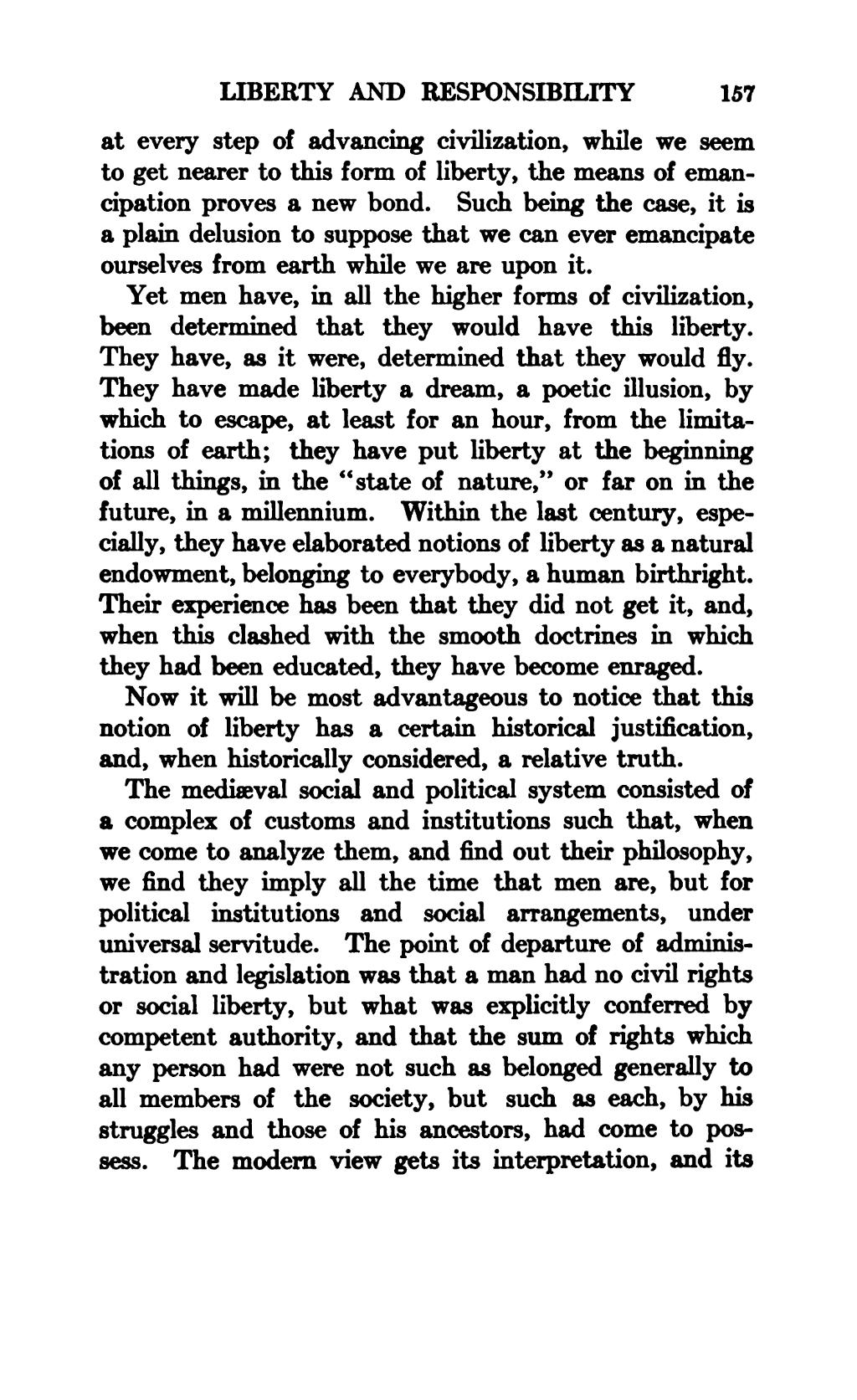at every step of advancing civilization, while we seem to get nearer to this form of liberty, the means of emancipation proves a new bond. Such being the case, it is a plain delusion to suppose that we can ever emancipate ourselves from earth while we are upon it.
Yet men have, in all the higher forms of civilization, been determined that they would have this liberty. They have, as it were, determined that they would fly. They have made liberty a dream, a poetic illusion, by which to escape, at least for an hour, from the limitations of earth; they have put liberty at the beginning of all things, in the "state of nature," or far on in the future, in a millennium. Within the last century, especially, they have elaborated notions of liberty as a natural endowment, belonging to everybody, a human birthright. Their experience has been that they did not get it, and, when this clashed with the smooth doctrines in which they had been educated, they have become enraged.
Now it will be most advantageous to notice that this notion of liberty has a certain historical justification, and, when historically considered, a relative truth.
The mediæval social and political system consisted of a complex of customs and institutions such that, when we come to analyze them, and find out their philosophy, we find they imply all the time that men are, but for political institutions and social arrangements, under universal servitude. The point of departure of administration and legislation was that a man had no civil rights or social liberty, but what was explicitly conferred by competent authority, and that the sum of rights which any person had were not such as belonged generally to all members of the society, but such as each, by his struggles and those of his ancestors, had come to possess. The modern view gets its interpretation, and its

